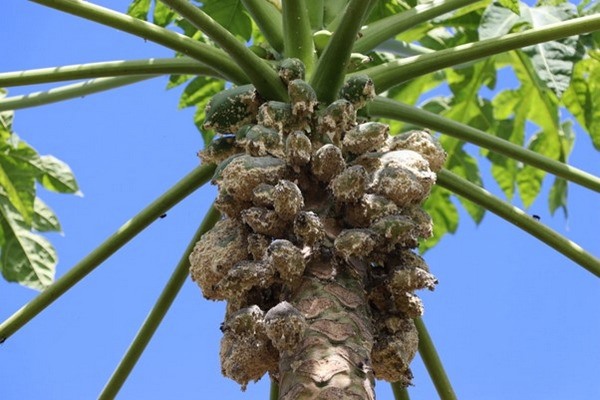A new study led by CABI has explored the potential distribution of Acerophagus papayae, a parasitic wasp that has been effective in controlling the papaya mealybug (Paracoccus marginatus) in Africa. Published in the journal Biological Control, the research utilized predictive modeling to assess the environmental suitability of A. papayae across the continent, aiming to support integrated pest management strategies.

The papaya mealybug is a significant pest, affecting over 133 crops worldwide and causing substantial economic losses, such as in Kenya where crop losses are estimated at around £2,224 per hectare annually. Originating from Central America, the pest was first detected in Kenya in 2016 and threatens the country's papaya production.
The study found that West Africa showed the highest suitability for both P. marginatus and A. papayae, with East and Central Africa also presenting suitable areas for both species. However, there were regions highly suitable for the mealybug but not for the parasitic wasp, indicating the need for alternative control methods in those areas. Northern and Southern Africa had limited areas suitable for the pest, with moderate to limited suitability for A. papayae.
The findings suggest good environmental suitability for A. papayae in South Sudan and southern Somalia, areas yet to record P. marginatus populations. The study emphasizes that environmental suitability is not the sole factor for the successful establishment and effectiveness of A. papayae as a biocontrol agent. The density of the host species, P. marginatus, and the plant hosts' impact on the life metrics of A. papayae are crucial considerations.
CABI, along with partners, has intensified efforts to combat the papaya mealybug in Kenya by deploying A. papayae in various counties, extending the fight to Uganda and South Sudan. This initiative is part of the broader PlantwisePlus program and receives support from the Darwin Initiative project focusing on the biocontrol of papaya mealybug in East Africa and its impacts on native insect biodiversity.
 For more information:
For more information:
Wayne Coles
CABI
Tel: +44 (0)1491 829395
Email: [email protected]
www.cabi.org
